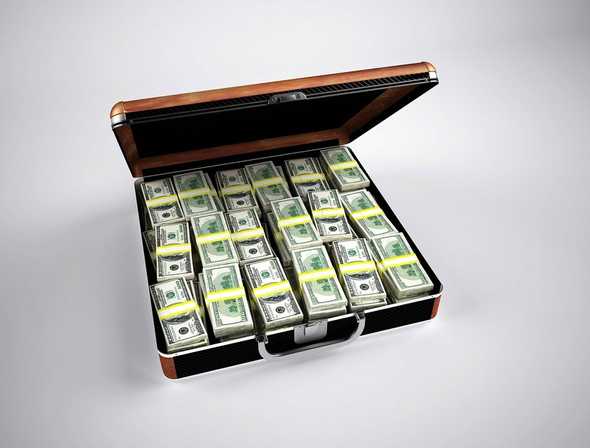Is the Lottery Haram? What You Need to Know
When thinking about whether something is forbidden or not, it can get complicated. Sometimes the words seem clear, but how religious leaders interpret them can be confusing, especially if they contradict each other. And what about people who participate in something that is supposedly forbidden, does that make them evil?
If you consider the lottery as a type of gambling, then it is haram because Allah forbids Muslims from all forms of addiction. Muslims who play the lottery say that it is not. They also consider it a form of contributing to a charity since some of the winnings go to causes such as education.
If you are interested in learning why the lottery is considered haram, how that affects whether Muslims can play the lottery, and what other religions have to say about gambling, read on.
Why Is a Lottery Considered Haram?
The reason the lottery is haram is that the Koran says so. There is no ambiguity in 5:90-91:
“O you who believe! Wine, gambling, altars, and divining arrows are filth from the work of Satan. Therefore, refrain from it, so that you may be successful. Satan wishes only to plant enmity and malice between you through wine and gambling, and to prevent you from the remembrance of Allah and from Salāh (prayer). Would you, then, abstain?”
Not only does it specially mention gambling, but it also explains why it is a sin. These are three reasons given:
- Satan uses gambling to cause division and hatred between people.
- It keeps a Muslim from staying focused on Allah.
- That time could be spent in prayer.
Gambling is seen as a major problem in Islam, linked with alcohol as something that can become an addiction. Along with seeing it as Satan’s work, the Prophet Muhammad saw that addiction could lead to numerous societal ills.
Not only would a gambling addiction cause an individual to avoid prayer, losing would lead to hard feelings between players. A gambler can lose so much that he cannot feed his family or go into debt.
Is a Lottery Considered Gambling?
Some of us think gambling is something you do with dice, cards, or a roulette wheel. Playing a lottery seems more like making a donation or paying a tax with the hope of getting back more than you paid.
Gambling is generally defined as a game where you risk something of value (money) in the hope of gaining a prize (usually more money). In gambling, the game should contain elements of chance. In 21, the cards are dealt randomly. In Mega Millions, great effort is made to ensure the balls are randomly selected.
Based on any reasonable definition of gambling, the lottery is a game of chance where you hope to win more than you paid to play.
What If the Winnings Go to a Charity?
Some people wonder if the Lottery can be harmful if the proceeds go to charity. However, that cannot be justified based on two principles:
- Donate directly. Not all proceeds in a lottery go to a charity. As a matter of fact, at least half of the money taken in goes back to the winners. If you wish to donate to a charity, do so directly.
- The ends don’t justify the means. Just because the money is going to a good cause does not mean you are not engaging in sinful behavior.
Can a Muslim Accept Winnings From a Lottery?
Let’s say that you play the lottery, hit the jackpot, and want to give some of your winnings to a practicing Muslim friend. Can your friend accept the money?
If you ask your friend to take the money, you are putting him in a difficult situation. On the one hand, the money could be used to pay bills, provide money for a relative, or put money into a scholarship fund for a child. However, you are asking your friend to take money that came from an activity considered sinful by his religion.
Can a Muslim Sell Lottery Tickets?
A Muslim will often buy a convenience store because the investment is low, and he has the skill set to run a store. So what to do about the fact that convenience stores sell several forbidden items—alcohol and lotteries?
Some owners argue that since both are legal to sell and the sales are only a small portion of total income, they can do so to have a successful store and make enough money to provide for their family.
Even so, they struggle with selling items considered sinful. In some cases, owners opt not to sell them. In other places, such as Chicago, organizations such as the Council of Islamic Organizations of Greater Chicago are encouraging Muslim-owned stores from selling alcohol and turn to provide something that is often in short supply in neighborhoods that rely on convenience stores—fresh produce.
These are isolated situations, however. Selling lottery tickets is haram, but many owners do so anyway.
Are All Lotteries Haram?
This is another sticky situation. On the one hand, associating with a sinful activity is imitating gamblers, which, according to the Hadith, is sinful. On the other hand, the Hadith is not considered holy by all Muslims. Therefore, many Muslims participate in lotteries that do not involve the exchange of money.
Players of free lotteries don’t consider them gambling because you might win, but there is no price to enter. Most of these lotteries can be found on the internet. Sites like these will list a variety of free lotteries. These contests typically require you to give your email and then watch advertisements for an opportunity to “win” a jackpot.
What Do Other Religions Say About the Lottery?
In the United States, southern states were among the last to adopt the lottery, and many of them argued that a lottery would sanction gambling. So what does the Christian Bible say about gambling?
The Bible has plenty to say about money. In Matthew 19:24, Jesus famously said that it would be easier “for a camel to go through the eye of a needle than for a rich man to enter the kingdom of God.” Other verses speak about “the love of money is the root of all evil” (1 Timothy 6:10), and in Exodus 20:17, we are told, “you shall not covet your neighbor’s house.”
However, the Bible never specifically says that gambling is wrong or sinful. Still, some Christian leaders caution against gambling because it could lead people to covet material possessions or commit other sins. Others argue that one should not gamble because people should trust God to take care of them. If you wish, you can follow a discussion about this on this YouTube video from Cornerstone Television Network.
Jewish religious leaders take a similar view. The Talmud does not forbid it, but it does say that a gambler (”someone who plays with dice”) cannot give testimony in a trial. However, lotteries and similar endeavors are not forbidden in the Jewish religion.
Buddhism also has no specific precepts against gambling. It is discouraged mainly because winning large sums of money that you have not earned negatively affects your karma.
Bottom Line
Although none of the other major religions forbid gambling, they do not encourage it. In Islam, however, gambling is considered haram, or a sin. Playing a lottery where one has to pay to play is forbidden, even if some of the proceeds will go toward a charitable cause, such as education.







